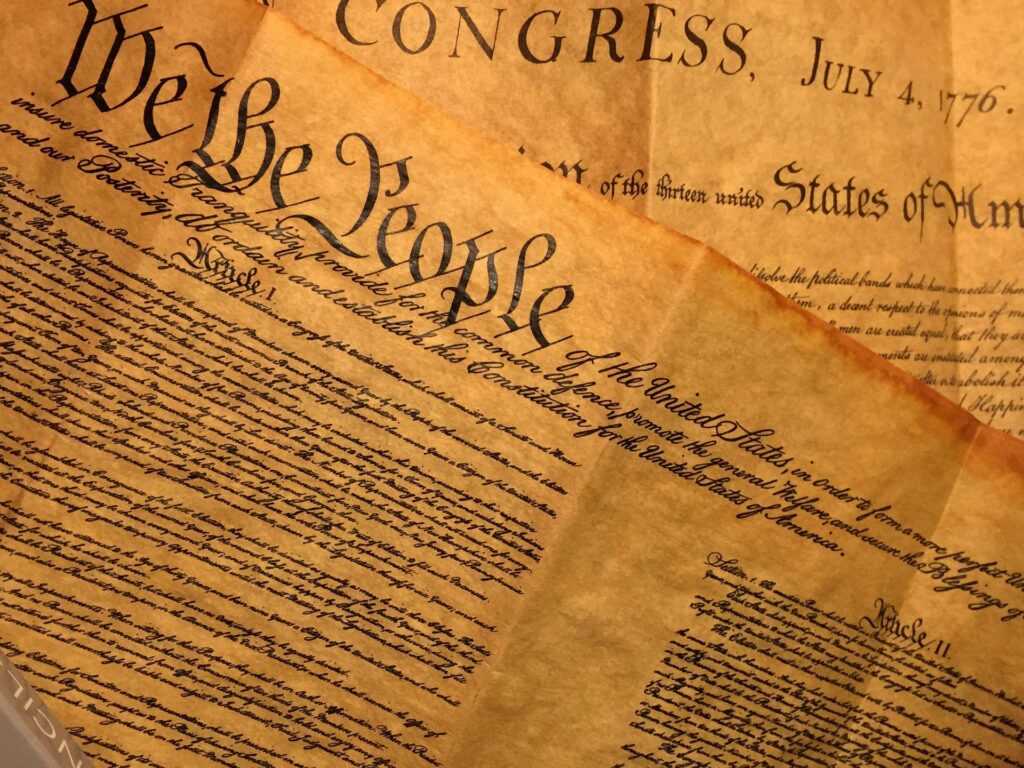By Amber Pavuscko, Staff Writer

In January 2020, a 14-year-old girl went missing and few leads were available. [1] From hundreds of miles away, a prosecutor volunteered widely available commercial data from cellphones to use in the investigation. [2] This data includes users’ locations which can be bought and used to track movement from specific locations. [3] Normally this data is not attached to a certain name but a string of numbers, however, it can be used to find where this person works, lives, who their friends are, and which protests they attend. [4] Using the girl’s home address, they tracked cell phones that were around the vicinity in the time she was last known to be there. [5] They were able to find the criminal, but they were also able to find out where he worked and where he lived. [6] In some instances, like the one described above, using commercial data can do good. Law enforcement were able to find the girl and arrest the suspect largely based on the data gathered. [7] However, what could be the far reaching negative consequences of allowing something similar to occur?
In February 2020, the Wall Street Journal broke the news that commercial data was being purchased and used to track immigrants’ movement along the border by agencies under the Department of Homeland Security (DHS). [8] The Defense Intelligence Agency (DIA) also tracked Americans’ movement, [9] as well as the Secret Service, [10] and the Internal Revenue Service (IRS). [11] Governments have also used the data to track movement to mitigate against the COVID-19 pandemic. [12] Some law enforcement agencies have even gone as far as purchase information data stolen from websites. [13] That data normally includes passwords, IP addresses, e-mail addresses, and more. [14] All of this data was obtained without a warrant. It’s a loophole and one that has yet be addressed by the Supreme Court despite concerns of Fourth Amendment violations.
After concerns of Fourth Amendment violations began increasing, the U.S. House Committee on Oversight and Reform opened an investigation into whether companies can sell this information to federal government agencies for law enforcement purposes. [15] Senators also requested inquiries from the DHS and the IRS into whether acquiring that data without a warrant had any legal authority. [16] Both agencies agreed to do an internal investigation. [17] However, once these agencies revealed their reasoning for the legal authority they had to obtain this data without a warrant, they were on shaky ground.
In 2018, Carpenter v. United States held that law enforcement needed a warrant to get geolocation data from cellphone carriers. [18] Chief Justice Roberts wrote in the opinion that location data from a cellphone “provides an intimate window into a person’s life, revealing not only [their] particular movements, but through them [their] ‘familial, political, professional, religious and sexual associations.’” [19] It “achieves near perfect surveillance.” [20] Despite this ruling, law enforcement agencies have gotten around this by purchasing location data from other commercial services. [21]
Law enforcement agencies have tried to distinguish their warrantless activity from the holding in Carpenter. In a leaked memo, immigration and custom agencies under the DHS rationalized that because the information was commercially available, it does not need a warrant. [22] After the IRS’s investigation, a similar rational, that the data was voluntary given to a third party, was raised from officials. [23] This argument was not only rejected by the inspector general who investigated the IRS but also in Carpenter. The exhaustive information that geolocation data provides to investigators circumvents reasonable expectations of privacy and provides for near perfect surveillance. [24] The voluntary nature of giving up this data also comes under scrutiny because there is no affirmative act done by the user and a cellphone has become “indispensable to participation in modern society.” [25] Moreover, opting out of the collection of data is not easy and requires users to go into their phone settings. [26]
In efforts to combat the Fourth Amendment violations, the American Civil Liberties Union filed a complaint against the DHS to seek their records, citing that the first step in achieving transparency is accountability. [27] Senators Ron Wyden and Rand Paul have led discussions and have proposed a bill, the Fourth Amendment Is Not for Sale Act. [28] The Act was proposed to limit buying commercial data by law enforcement agencies but it does not stop volunteers like the story from January 2020. Senator Wyden has stated that “[i]t is clear that multiple federal agencies have turned to purchasing Americans’ data to buy their way around Americans’ Fourth Amendment Rights.” [29] The legislation proposed is meant to help close this loophole, “and ensure the Fourth Amendment isn’t for sale.” [30]
[1] https://www.wsj.com/articles/law-enforcements-use-of-commercial-phone-data-stirs-surveillance-fight-11631707201
[2] Id.
[3] Id.
[4] https://www.buzzfeednews.com/article/hamedaleaziz/ice-dhs-cell-phone-data-tracking-geolocation
[5] https://www.wsj.com/articles/law-enforcements-use-of-commercial-phone-data-stirs-surveillance-fight-11631707201
[6] Id.
[7] https://www.wsj.com/articles/law-enforcements-use-of-commercial-phone-data-stirs-surveillance-fight-11631707201
[8] https://www.wsj.com/articles/federal-agencies-use-cellphone-location-data-for-immigration-enforcement-11581078600
[9] https://www.nytimes.com/2021/01/22/us/politics/dia-surveillance-data.html
[10] https://www.vice.com/en/article/jgxk3g/secret-service-phone-location-data-babel-street
[11] https://www.wsj.com/articles/irs-used-cellphone-location-data-to-try-to-find-suspects-11592587815
[12] https://www.wsj.com/articles/once-pariahs-location-tracking-firms-pitch-themselves-as-covid-sleuths-11592236894?mod=article_inline
[13] https://www.vice.com/en/article/3azvey/police-buying-hacked-data-spycloud
[14] Id.
[15] https://www.theverge.com/2020/6/25/21303190/congress-data-smartphone-tracking-fbi-security-privacy
[16] https://www.wsj.com/articles/homeland-security-watchdog-toprobe-departments-use-of-phone-location-data-11606910402; https://www.wyden.senate.gov/imo/media/doc/102320%20Wyden%20Warren%20Brown%20Markey%20Schatz%20Letter%20RE%20CBP%20Phone%20Tracking.pdf
[17] Id.
[18] https://www.supremecourt.gov/opinions/17pdf/16-402_h315.pdf
[19] https://www.aclu.org/news/immigrants-rights/the-u-s-government-is-secretly-using-cell-phone-location-data-to-track-us-were-suing/
[20] Carpenter v. United States, 138 S. Ct. 2206 (2018).
[21] https://www.vox.com/recode/22038383/dhs-cbp-investigation-cellphone-data-brokers-venntel
[22] https://www.buzzfeednews.com/article/hamedaleaziz/ice-dhs-cell-phone-data-tracking-geolocation
[23] https://www.wsj.com/articles/treasury-watchdog-warns-of-governments-use-of-cellphone-data-without-warrants-11614003868
[24] Carpenter, 138 S. Ct. at 2210.
[25] Id.
[26] https://www.vox.com/recode/22038383/dhs-cbp-investigation-cellphone-data-brokers-venntel; https://www.wired.com/story/ad-id-ios-android-tracking/
[27] https://www.aclu.org/news/immigrants-rights/the-u-s-government-is-secretly-using-cell-phone-location-data-to-track-us-were-suing/
[28] https://www.wsj.com/articles/law-enforcements-use-of-commercial-phone-data-stirs-surveillance-fight-11631707201
[29] https://www.vice.com/en/article/jgxk3g/secret-service-phone-location-data-babel-street
[30] Id.